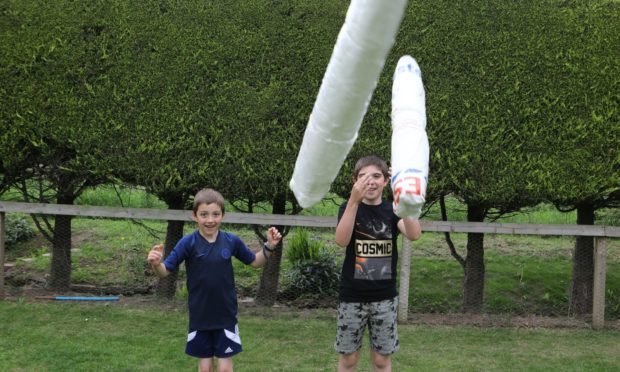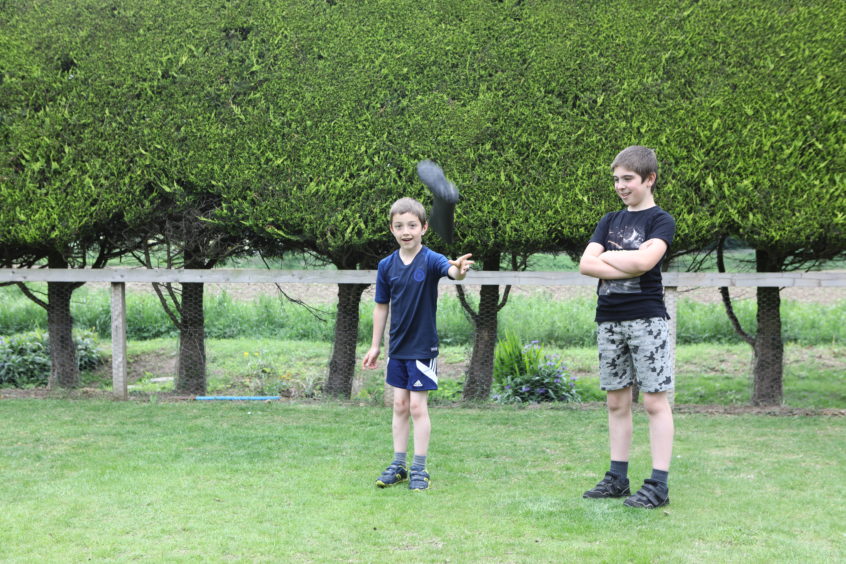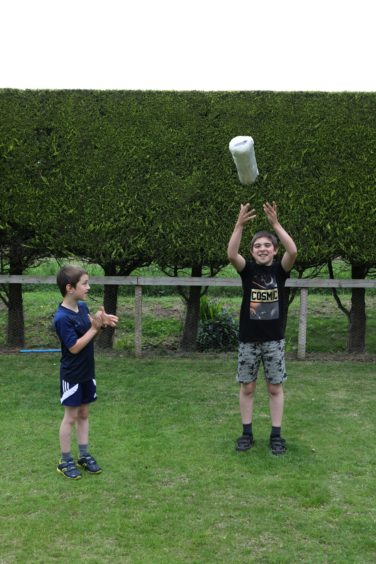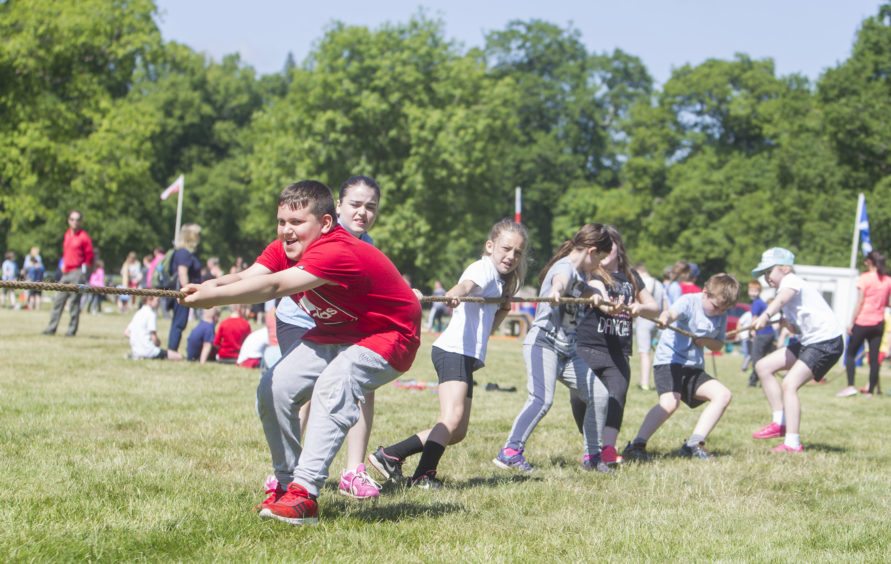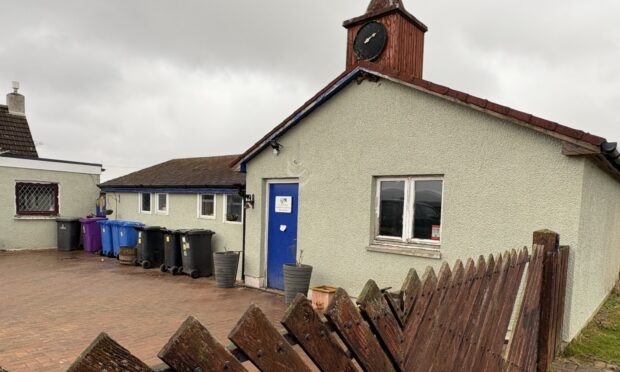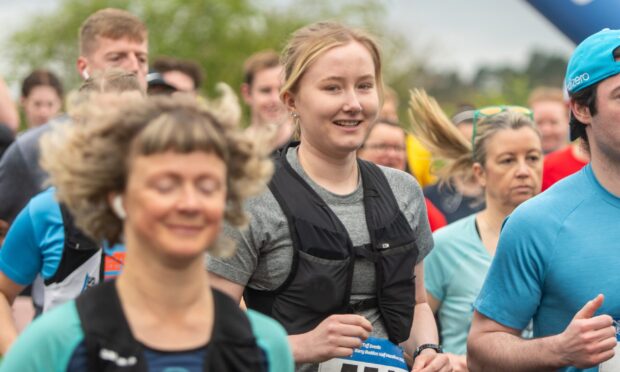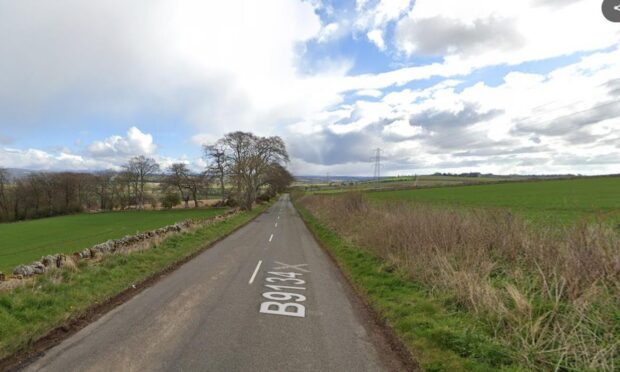The Highland Games season will swing into action for hundreds of Angus youngsters this week in a lockdown initiative to keep grass roots interest alive.
In a virtual development of an initiative which has turned the traditional spectacle into a highlight for local primary pupils, Strathmore Highland Games is leading an online event for schools in the area around the event’s Glamis Castle home.
Blue Peter-style skills and a degree of ingenuity have been adopted to develop events including the sock shot putt and mini caber tossing in what is hoped will be a fun distraction for parents wrestling with the challenges of home schooling.
Strathmore Games official Lorna Cochrane said: “For the past five years we have grown the schools’ highland games project and it has turned into something really popular.
“We would normally be out in the Kirriemuir cluster primaries teaching the children some of the sports, and they then gather in the grounds of Glamis Castle for their own games a couple of days ahead of the big event.
“We’d normally have more than 500 kids at Glamis over two days and it’s been a huge success.
“It’s lot of hard work but is really rewarding and great fun. It’s all part of the effort to encourage the next generation of Highland Games athletes.
“Obviously we’re really disappointed that none of that can go ahead this year, but we were determined to try to do something to coincide with what would have been games week and we’ve come up with these activities which parents and children can get involved with if they fancy.
“We’ve had huge help from our active schools co-ordinator Magnus Moncrieff in putting the whole thing together and all of the activities have been designed to be easy to do, indoors or out.”
From Monday, instruction videos will be sent to children via schools’ online learning networks.
Kirriemuir’s Karen Laird School of Highland Dancing will also guide youngsters through the basics of the sport as part of the programme.
The pandemic wipeout of the Highland Games season is set to hit the Scottish summer economy to the tune of millions of pounds.
Ailsa’s reward for ‘winning’ the dancing competition was the ten shilling prize which was award to the victor of the 1870 event.
